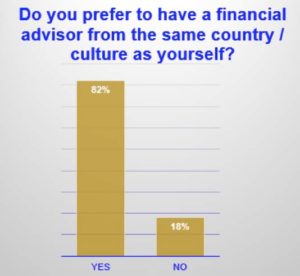A software company in Chicago was growing fast. They wanted to build momentum globally and decided to make a big push into Asia Pacific. The plan was to replicate their initial sales success by moving a few key executives out to the region to build a team. But it didn’t take long for their journey east to hit unexpected and expensive road blocks.
What went wrong for this company is more common than one might expect. Expanding sales teams into Asia is particularly tough for Western companies. The Managing Director in charge of the expansion said that if they could do it over again, they’d do a lot of things differently. This article focuses on identifying key sales obstacles that continue to cost companies millions of dollars as well as provide frameworks needed to successfully break into the exciting, but tricky, markets of Asia Pacific.
When growing sales teams across Asia the key theme that comes up again and again is adaptability.
Why? Because the world isn’t nearly as flat as everyone thought. Over the last few decades many of the so-called “emerging markets” became the hot new places to do business. Growth took off.
But then something happened.
As these countries emerged, so too did their confidence. Far from the belief that a global homogenising culture is taking root, in many cases, the opposite seems to have happened. These markets know what they want and do things their own way. A cut and paste solution from another part of the world, even if it’s an industry leader, may not work. Our company calls this a multipolar sales environment and there are several ways to approach sales expansion in this kind of setting.
Consider our friends from Chicago. They decided to open an office in Singapore and moved one of their top sales leaders over from headquarters to lead the effort. This is common. Executives from HQ know the product and can drive the company culture. But it’s not so simple. In this case, the company announced they would focus initially on ASEAN, Greater China and India and would be building a sales team located in Singapore to cover the region. That’s a lot of ground to hit at once. The first issue here is the common belief of thinking about Asia Pacific as a single market.
It’s not.
Every country is different. Large countries such as China and India are vastly diverse even within their own borders. So having a single APAC strategy should include the maxim that there is no such thing as a single APAC strategy. Depending on your company’s resources, it’s best to start with one or two markets to learn the local terrain before expanding across the larger region.
Second, sales strategies that worked in other regions won’t necessarily work across Asia. This goes for managing teams as well as customers. Not only might they not work, but skill sets that are most effective back home may be the very things that cause teams to fail elsewhere. Our Chicagoan learned this paradox the hard way. His approach to team building and team management resulted in a frustrated and disconnected sales team. The approach that made him successful in the US had the opposite effect in Asia.
My company has done surveys around the APAC region looking at this critical topic. The findings suggest an overwhelming desire to work with people who are from the same country or culture as themselves. People buy from people they are comfortable with.
Leaders responsible for sales teams around the world take note: You may be running a business globally, but are you selling locally?
 We wanted to understand how people thought about both sales and customer relationship experiences. We decided that financial advisors were a good place to start, as they are often responsible for selling and owning the ongoing client relationship. We asked if people prefer a financial advisor who comes from the same country or culture as they do. Over 1100 people across APAC responded.
We wanted to understand how people thought about both sales and customer relationship experiences. We decided that financial advisors were a good place to start, as they are often responsible for selling and owning the ongoing client relationship. We asked if people prefer a financial advisor who comes from the same country or culture as they do. Over 1100 people across APAC responded.
This result is not entirely surprising – over 82% said they wanted someone from the same country or culture – but does raise potentially difficult questions around how organizations growing globally build and manage local relationships. For companies growing sales teams in new regions, learning about these preferences is critical. We asked this follow up question:
Why Do You Prefer A Local Financial Advisor?
 Having an understanding of local markets and the ability to communicate clearly stand out as the biggest reasons people prefer buying, and working, with locals. Understanding markets are critical, especially for companies new to the region. In a multipolar sales environment, local conditions and expectations now matter more than ever.
Having an understanding of local markets and the ability to communicate clearly stand out as the biggest reasons people prefer buying, and working, with locals. Understanding markets are critical, especially for companies new to the region. In a multipolar sales environment, local conditions and expectations now matter more than ever.
This means that a proven track record on the other side of the world no longer carries the same weight it did a generation ago.
How to navigate a multipolar sales world?
Here are some key areas companies should consider as they look to grow out their APAC sales teams.
- Know before you go. Research is essential. Take a careful look at competitors both local and from overseas to understand their approach. Be sure to look beyond the shiny press-releases and case studies because they won’t tell you what’s really going on.
- No matter how much research is done up-front, you won’t know what you’re truly up against until you get there. Start small and get one or two markets right before making a larger regional push. A slower approach will lead to faster results.
- The sales strategy should be to focus on hiring local professionals with experience working for foreign companies. This will require extra time working through cross-cultural communication challenges.
In the case of the software company, the leader moved back to Chicago with his family within a year. The company reduced their staff (many who had quit were simply not replaced) and announced a revised strategy to focus first on Singapore and Malaysia. They hired a local manager and they are slowly learning how to adapt to the different market conditions. This scenario cost the company millions of dollars but they survived to fight another day.
While the world is certainly becoming more global people still want to buy locally. This is a critical idea for companies who plan on building teams in new regions, especially across Asia.
About Kyle Hegarty:
Kyle Hegarty is the Managing Director of Leadership Nomad, part of the TSL Group, where he focuses on helping companies expand across APAC and the globe. Kyle looks at how companies connect with themselves and their customers with a concentration on communication, sales and marketing and management leadership. He has trained thousands of executives and is a frequent speaker at business and management conferences around the world. His APAC work has been covered in MSNBC, CNN and Fortune.
